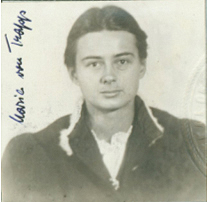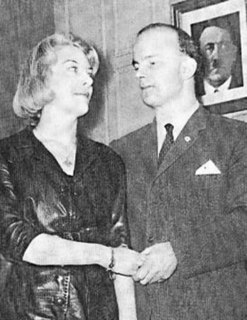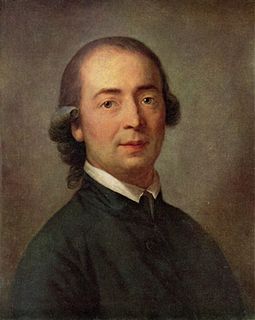A Quote by Maria Franziska von Trapp
The grief of a child is always terrible. It is bottomless, without hope. A child has no past and no future. It just lives in the present moment - wholeheartedly. If the present moment spells disaster, the child suffers it with his whole heart, his whole soul, his whole strength, his whole little being.
Related Quotes
But somewhere, a child surprises himself with his endurance, his quick mind, his dexterous hands. Somewhere a child accomplishes with ease that which usually takes great effort. And this child, who has been blind to his past, but his heart still beats for the thrill of the race, this child's soul awakens. And a new champion walks among us.
It is easy to say that you can adopt the whole human race as your children, but it is not the same as living in a home with a child and shaping all you do to help him learn to be happy and whole and good. Don't live your life without ever holding a child in your arms, on your lap, in your home, and feeling a child's arms around you and hearing his voice in your ear and seeing his smile, given to you because you put it into your heart.
If we are not fully ourselves, truly in the present moment, we miss everything. When a child presents himself to you with his smile, if you are not really there - thinking about the future or the past, or preoccupied with other problems - then the child is not really there for you. The technique of being alive is to go back to yourself in order for the child to appear like a marvellous reality. Then you can see him smile and you can embrace him in your arms.
Our Lord's miracles were all essential parts of His one consistent life. They were wrought as evidences not only of His power, but of His mercy. They were throughout moral in their character, and spiritual in the ends contemplated by them. They were in fact embodiments of His whole character; exemplars of His whole teaching, emblems of His whole mission.
Life, as a part, is interwoven with the life of the whole, not only present, but past and future, for while men come and go the folk lives on, continuous, eternal, providing its members perform their duty to it. Thus, in identifying himself with his folk man prolongs himself through the multiplicity of his ancestors and his descendants, and thereby attains immortality.
Originally the structure was . . . a modern narrator who would appear intermittently and talk about his memories of his grandmother, which would then be juxtaposed against scenes from the past. But the stories from the past were always more interesting that the things in the present. I find this almost endemic to modern plays that veer between past and present. . . . So as we've gone on developing GOLDEN CHILD, the scenes from the past have become more dominant, and all that remains of the present are these two little bookends that frame the action.



































